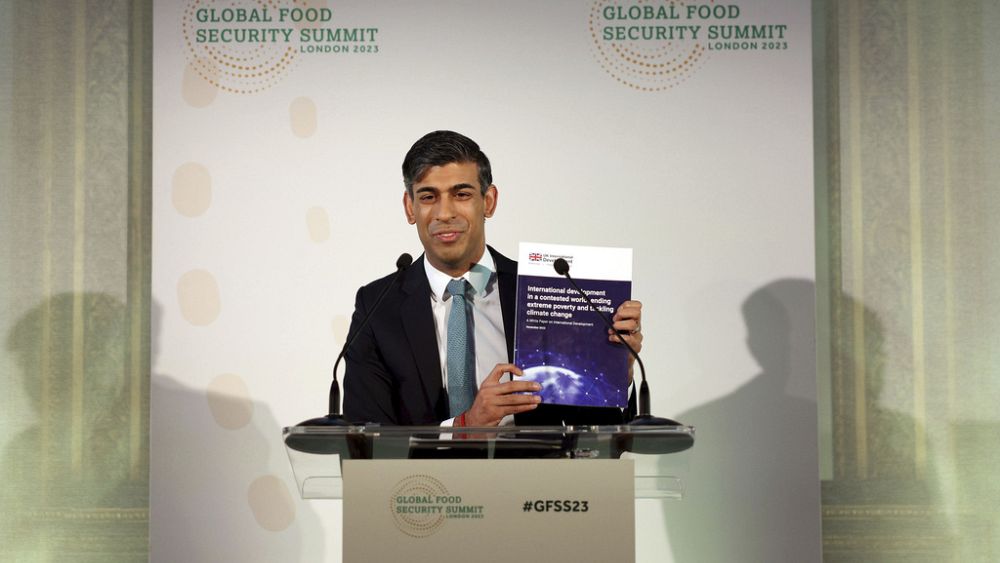At a one-day Summit on Global Food Security held in London, Rishi Sunak engaged in dialogues with delegates from around 20 nations, advocating for the use of cutting-edge technologies like artificial intelligence to address worldwide hunger issues.
The British Prime Minister, Rishi Sunak, unveiled a new scientific venture in the UK aimed at supporting the growth of flood-resistant corn, disease-immune wheat, and other crops with increased resilience to climate change impacts.
Emphasizing the need for a “fundamental shift” to combat the escalating food security challenges intensified by climate change, Sunak highlighted the crucial role of science. He disclosed plans to create a “virtual research hub” to foster collaboration among global researchers working on developing more resilient crops. The UK is set to play a significant role in the international research consortium CGIAR.
Addressing the mounting challenges to food supplies due to climate change, conflicts, and population growth, Sunak stressed the importance of proactive measures to prevent food crises. He underscored the significance of embracing an innovative approach to food security and harnessing scientific and technological advancements to enhance crop resilience against threats such as conflicts, droughts, and floods.
The Global Food Security Summit was jointly hosted by the Children’s Investment Fund Foundation and the Bill & Melinda Gates Foundation, with additional backing from the United Arab Emirates and Somalia.
Simultaneously, the UK introduced a “re-energized” development strategy focused on eradicating extreme poverty, tackling climate change, and reversing biodiversity loss. The strategy, unveiled alongside the summit, outlines the UK’s aid priorities for 2030 and confirms that the reinstatement of development aid to 0.7% of gross national income, reduced to 0.5% during the pandemic, will be subject to fiscal conditions. Alternatively, the UK commits to strategically allocating resources to enhance natural disaster resilience in countries, mobilize increased private-sector investments for development, and nurture mutually beneficial partnerships with developing nations.
Foreign Secretary David Cameron emphasized the shift from traditional donor-recipient relationships towards collaborative partnerships empowering developing nations to shape their progress and narratives.
During the discussions, humanitarian organizations advocating for peace in the Israel-Hamas conflict staged protests outside the Lancaster House conference venue, urging for immediate humanitarian aid to Gaza.
Melanie Ward, the organization’s CEO, raised concerns that despite global focus on food security, the critical situation in Gaza, where 2.2 million people are at risk of starvation, might be disregarded. The current aid inflow remains inadequate, barely meeting the needs of Gazans for a few days, with less than 10% of the required food supplies reaching the region.
Sunak urged Israel to permit “urgent and substantial humanitarian pauses” to enable the delivery of essential supplies like food, fuel, and medication, highlighting the deteriorating conditions in the area. While the UK and the US stopped short of explicitly calling for a cease-fire, Sunak stressed the urgency of the situation, stating, “The situation is truly dreadful and only getting worse.”






